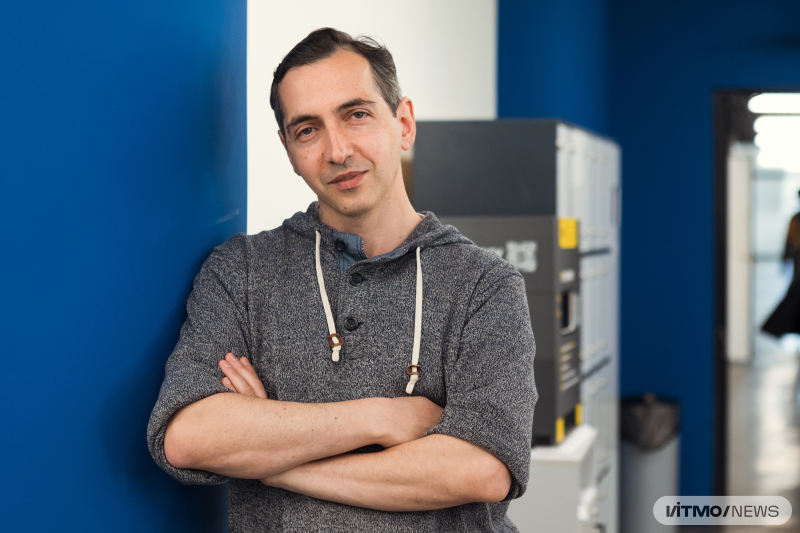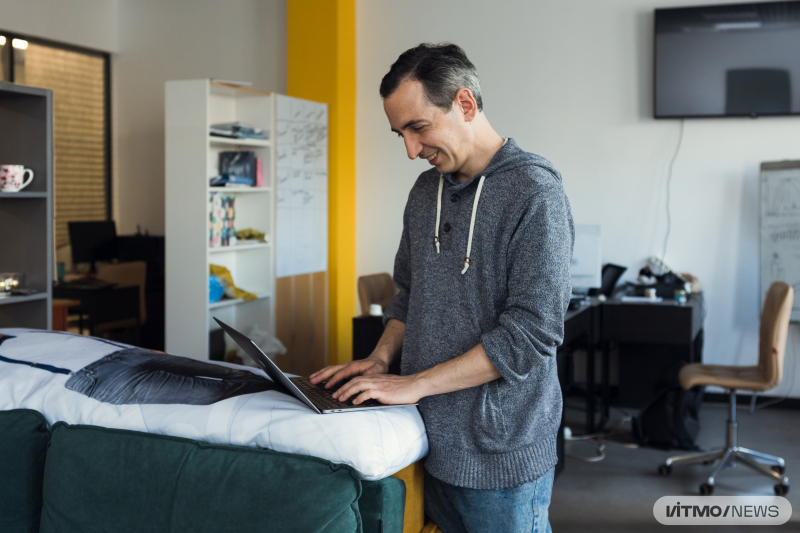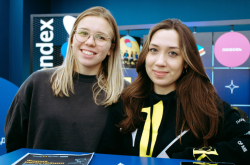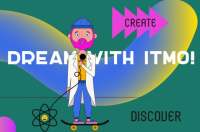Mikhail Raiko is a PhD in Biology with over 10 years of experience in his professional field. He has worked as a senior researcher at St. Petersburg State University and a research fellow at UC San Diego (the USA). Since 2024, he has headed the Master’s program Applied Genomics at ITMO.
In recent years, bioinformatics has become a much more discussed topic – and yet, it seems like it’s still less known than, say, regular biology. What are the fields in which bioinformatics engineers are in most demand, and what tasks are they working on?
Bioinformatics is a science that combines biology with information technologies and big data. The result of this intersection is the ability to “extract” new knowledge from massive arrays of data.
One of the fields in which bioinformatics specialists are most prominently involved is applied medicine. That includes the diagnostics – and prediction – of hereditary diseases, family planning, and oncology. For instance, laboratories can now perform full-scale analysis of a whole genome, meaning all the hereditary material contained within an organism’s cells, and evaluate the possible risks associated with the offspring and which diseases it could inherit. This also helps us develop individualized, highly effective treatment strategies for each person.
Another field of application is biotech. Bioinformaticians are involved in developing new products and analyzing the effectiveness of the manufacturing and application of existing strains (bacteria, viruses, or fungi) that are used in, for example, the production of medicine.
Then, there’s agriculture: here, bioinformaticians are involved in the development of new animal and plant species, as well as in conservation genetics. This is a field of study that aims to preserve endangered animals and plants and, thanks to the study of genomes, we’re able to breed specimens not at random but by choosing those that are the most distant from each other genetically and thus increasing the diversity of populations.
Lastly, we can’t avoid mentioning the fundamental life sciences: the theory of evolution, population genetics, and the study of biodiversity. We could say that bioinformatics is concerned with the three main questions about humans: where we’re from, who we are, and where we’re going.
Mikhail Raiko. Photo by Dmitry Grigoryev / ITMO.NEWS
So, a bioinformatician must be a multifaceted specialist well-versed in several scientific fields. How feasible is it to train such “universal scientists?” Or do they still have to settle on one final specialization in the course of their studies?
A bioinformatician must possess general knowledge and skills, which they will enhance with more niche competencies. Firstly, that includes data analysis and programming skills. Secondly – the fundamentals of natural sciences, especially molecular biology.
And that is where Master’s studies can come in handy. On the one hand, this is where you learn to be this well-rounded specialist with basic technical competencies. On the other, it’s sort of like a sandbox where you can get to know about the different sciences, decide what interests you, and grow in that direction.
At ITMO, Master’s students can try their hand at population genetics, medical bioinformatics (such as the interpretation of genetic data), the development of biodata analysis algorithms, or the study of genomes and metagenomes (meaning the data of not one organism, but an entire community).
Starting this year, the Applied Genomics program is adopting a new format: now, the studies will follow a modular system centered around three educational tracks:
- industrial (for those planning a corporate career);
- academic (for those with an interest in classic science);
- startup (for those with an idea for a personal project).
This is so that during their studies, the students are able to not only acquire the relevant knowledge and skills, but also to receive special training that familiarizes them with tasks they’ll encounter in their work, learn all they need to know to solve them, and start building their career in the chosen field.
Regardless of the track, all students will attend the mandatory fundamental courses. Then, there are mandatory courses for each of the three tracks, as well as the various subjects each student will get to pick based on their interests.
Photo by Dmitry Grigoryev / ITMO.NEWS
What made you go with the modular training system, rather than a general curriculum, at Russian universities? Did you, perhaps, also consider an educational track system in which the student is fully in control of their studies – like practiced in the US and Europe?
Based on my professional experience abroad, I can say that the average Russian student tends to have a larger pool of knowledge and skills than, say, an American one, and the reason lies in academic traditions. Russian educational programs are more comprehensive, sequential, and closely connected – students know what they’ll be doing during each year. This helps provide them with a large amount of knowledge and skills that’ll result in a quality specialist.
In the US and Europe, you get to choose from your first year, and that endows you with more freedom – but also more responsibility for your choices. If you don’t pick a course that’s vital for your career, no one is going to tell you about that. This, on the one hand, benefits students by making them more independent and able to deal with unpredictability. On the other hand, graduates are often not as well-equipped, and that shows in their work.
At ITMO, we’ve been able to find a compromise between the two approaches. You could say we’re working according to Nassim Nicholas Taleb’s Antifragile concept, maintaining a balance between fundamental, universal knowledge and niche competencies.
Another important point that’s often brought up: an in-demand specialist can’t be trained without getting businesses involved at the training stage. What are you doing in that regard? How are you making sure that graduates succeed on the job market?
To continue the analogy with foreign universities, we can look at how long they’ve been establishing relationships with companies, laboratories, and hospitals. In such circumstances, students are able to work on real cases, data, and even with patients while still at university. We, too, are adopting such practices. We’re not building our program in a vacuum, but rather adjusting it based on the real needs of the market. This happens, in part, thanks to our established connections with our partners.
Starting this year, the program Applied Genomics is classified as a corporate Master’s program. Our chief partner is Rosneft, a company that’s currently developing a database of 100,000 Russian genomes. This collaboration will help us conduct research into hereditary conditions and the ways to assess their risk of development. In addition, we’ll be using Rosneft’s resource pool for our internship programs: ITMO students will join the company’s projects and, if they prove their worth, return as employees after graduation.
Among our other partners are Nobias Technologies, a Russian company involved in the production and manufacture of equipment for metagenome research (from sample connection to data analysis), and the Beijing Institute of Genomics. In the latter’s case, we have agreements on exchange programs: in the second year, students can apply for a several-month internship in China.
Another crucial academic partner of ours is the Kazan Federal University, which provides us with access to a large pool of genetic data from various organisms. The university’s specialists are involved in extreme genomics, which is the study of creatures that live in extreme conditions: very high or low temperatures, deep underwater or in desert regions. Our knowledge of the intricacies of these creatures’ DNA provides us with opportunities to create new substances, such as medical ingredients.
If anyone is interested in such work, but in the context of bacterial research, there is such a group in Moscow. We also have contacts with the All-Russia Research Institute for Agricultural Microbiology, Institute of Cytology and Genetics, Komarov Botanical Institute, and the Zoological Institute.
Academic partnerships are just as important as corporate ones: networking and joint projects are integral to scientific work. It is through these connections that scientists can join research teams and find work, so studying “in a vacuum,” too, often causes problems with employment.
As a specialist who has already accumulated some contacts in academia, I’ll be establishing the students’ communication with other research teams. There are many options – what really matters is that you have an interest and a glint in your eye.
Learn more about the program and its curriculum on our admissions website. To keep up with updates from ITMO’s Advanced Engineering School, join its Telegram channel (in Russian). Applicants can enroll in the program by taking entrance exams, competing in the Portfolio Contest, or joining the Bioinformatics Bootcamp (link in Russian) hackathon.





